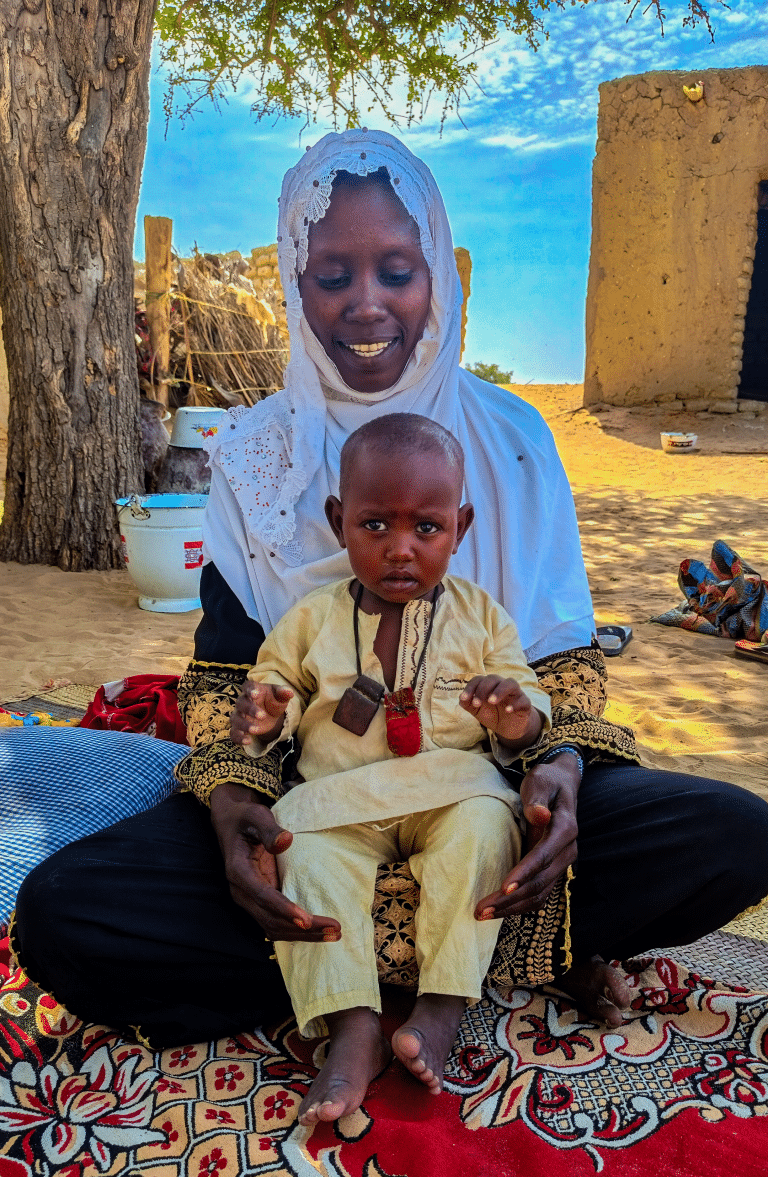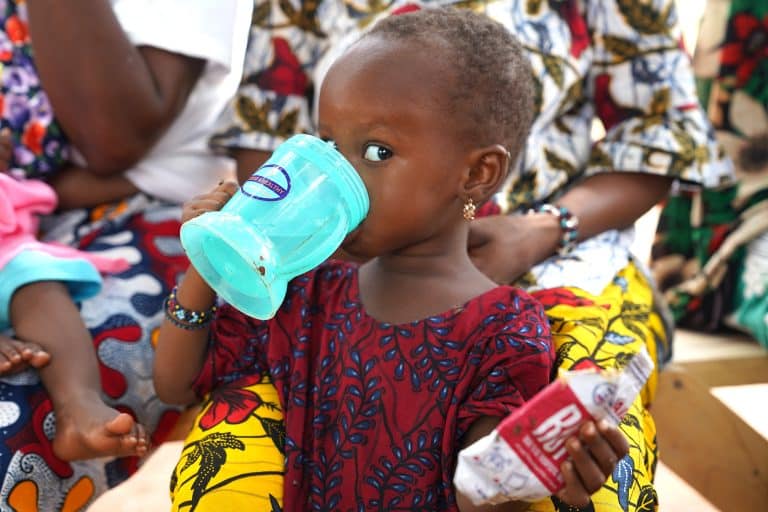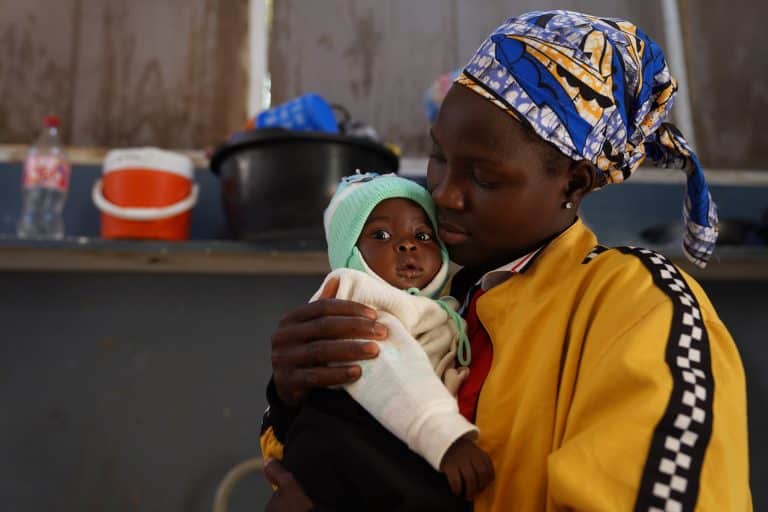“My name is Bernardin Koalga, but they call me ‘the detective.’
My work consists of using “clues” to search for the families of children who have defaulted from our malnutrition treatment programs, to determine if the child is still alive, to discover their reason for abandoning the program and then convincing their mothers to come back to the health center, if the child still requires treatment. I am the first one here to do this kind of job.
The work isn’t always easy. Each morning I wake up very early, usually before the sun rises. I need to arrive in village before everyone goes to work in the fields. My first stop is at one of the 54 community health centers we support. There, I get a list of the children who have recently abandoned the program. I try to get all the details I can: their name, village, parents’ name and a phone number, if possible. Then I contact the local community health agent to inform him or her of my mission and see if they can help me. Finally, I get back on my motorbike and drive – sometimes as far as two hours – into the bush and try to find these villages. Along the way, I stop to ask for directions or to see if anyone has heard of the family I am searching for. Sometimes it is quick; other times it can take days or weeks.
When I finally arrive at the the right household, first I present myself and explain why I have come. Once given permission, I speak with the mother of the child about malnutrition and convince her of the importance of staying in the treatment program. I explain that this disease can impact a child’s physical and intellectual growth, and even kill them. Then I measure the child’s arm using the MUAC tape and check for edema to see what their nutritional state is. I always make sure to ask the reason for defaulting from the program.
There are many reasons children stop coming for treatment. Sometimes the mother has too much work; sometimes the family lives too far from the health center to come each week; sometimes the child seems to be gaining weight and so the need to continue coming isn’t apparent; sometimes, unfortunately, it is because a child has died. Often times mothers miss one treatment session and then are afraid to go back. My most recent case was a father who was bitten by a snake while sleeping and the mother had to stay with him instead of taking the child to treatment.
Above all, my priority is to educate the mother about malnutrition and the consequences of not getting treatment. I explain to them the health risks and and the importance of staying in treatment until the doctor discharges them, even if it seems their child is getting better. I help the mothers understand that the referrals are free, the transportation is free, that you will not pay for food…everything is free. I’ve found that in many cases the defaulters come back. And among these dropouts, there are many who have recovered. And that really makes me very happy.
But yes, it’s true: Sometimes I don’t succeed. Sometimes it is too late or sometimes I can’t make the family understand. These lost cases always stay with me. But since becoming ‘the detective’ I have helped find so many children and convinced their parents to return to the treatment programs. This is the part of my job I love most: saving lives. This work allows me to help children become the men and women of tomorrow.”
Photo & video: What took you so long? / ALIMA





